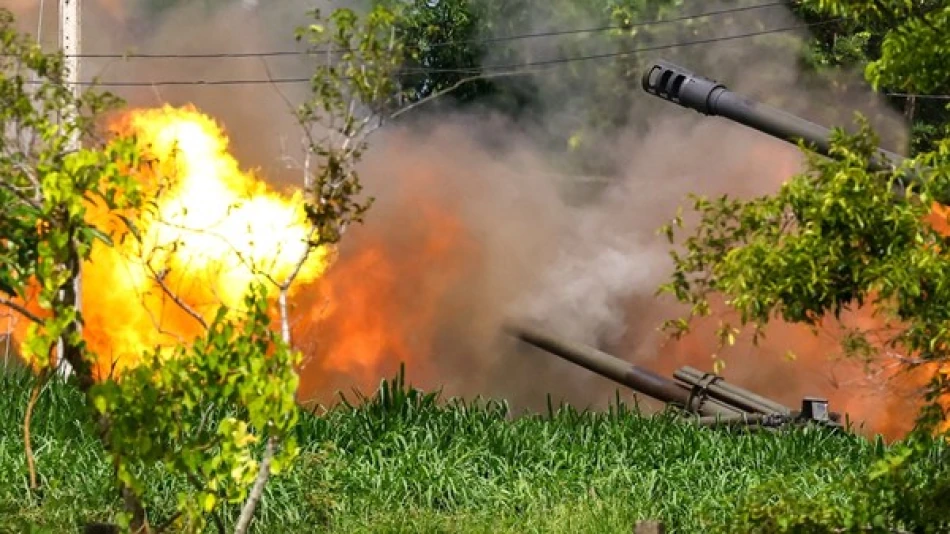
Trump Seeks to Halt Recent Clashes in Talks with Cambodia and Thailand
Trump Mediates Thailand-Cambodia Border Conflict as Trade Leverage Mounts
President Donald Trump announced Saturday that he is actively mediating talks between Thailand and Cambodia to resolve their deadly border dispute, which has claimed at least 33 lives. Speaking from Scotland, Trump revealed he had conducted separate phone calls with leaders from both nations and threatened to withhold trade agreements until the fighting stops—a move that signals America's return to transactional diplomacy in Southeast Asia.
Direct Presidential Intervention
Trump's engagement represents a significant shift in U.S. diplomatic approach to regional conflicts. Writing on Truth Social, the president detailed his conversations with Cambodia's Prime Minister and Thailand's acting Prime Minister, describing the latter exchange as "very good."
"Thailand, like Cambodia, wants an immediate ceasefire and peace," Trump posted, adding that he would relay this message back to Cambodia's leadership. His optimistic assessment—"ceasefire, peace, and prosperity seem natural"—suggests both sides may be more receptive to mediation than their continued fighting would indicate.
Economic Pressure as Diplomatic Tool
Trump's decision to link trade negotiations with conflict resolution echoes his administration's broader strategy of using economic leverage to achieve foreign policy goals. This approach has proven effective in other contexts, from Middle East peace deals to North Korea negotiations, where economic incentives helped break diplomatic deadlocks.
For Thailand and Cambodia—both emerging economies heavily dependent on international trade—the threat of delayed U.S. trade agreements carries substantial weight. Thailand's export-driven economy and Cambodia's growing manufacturing sector make American market access crucial for their economic development plans.
Ancient Disputes, Modern Consequences
The current violence stems from longstanding tensions over disputed ancient temple sites, but has now expanded beyond these symbolic flashpoints. The conflict has spread along the rural border region, characterized by hills surrounded by wilderness and agricultural lands where locals cultivate rubber and rice.
Saturday marked the third day of intensified clashes, with fighting extending to coastal areas where both nations meet the Gulf of Thailand—approximately 250 kilometers southwest of the main confrontation lines. This geographic expansion suggests the dispute has evolved beyond localized temple disagreements into broader territorial contestation.
Regional Pattern Recognition
Trump drew parallels between this conflict and the Pakistan-India tensions his administration previously helped resolve, stating he was trying to "simplify a complex situation." This comparison reveals his administration's confidence in applying successful diplomatic formulas across different regional contexts.
The Pakistan-India precedent is particularly relevant, as both conflicts involve post-colonial border disputes, religious and cultural sites, and economic interdependence that makes prolonged conflict costly for all parties.
Strategic Implications for Southeast Asia
Trump's direct involvement signals renewed American interest in Southeast Asian stability, particularly as China continues expanding its regional influence through economic partnerships and infrastructure projects. By positioning the U.S. as an effective mediator, Trump aims to demonstrate American relevance in a region where Chinese influence has grown significantly.
The timing is crucial, as both Thailand and Cambodia have strengthened ties with Beijing in recent years. Successful American mediation could provide Washington with enhanced leverage in broader regional competition with China, while offering both nations an alternative to Chinese-dominated economic frameworks.
For regional stability, Trump's intervention could establish a precedent for American engagement in Southeast Asian disputes, potentially deterring future conflicts while strengthening U.S. partnerships in this strategically vital region.
Most Viewed News

 Layla Al Mansoori
Layla Al Mansoori






